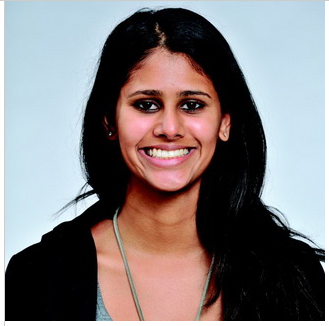By Erica Patel -- a fourth year medical student at the Keck School of Medicine of USC
I love that medicine is a mixture of stories, in which patients' narratives are woven into a physician's understanding of humanity. Tales of sadness intermixed with accounts of joy provide a balanced perspective of the world, and give valuable insight into our existence. No place is richer with narratives than the LAC+USC Medical Center in Los Angeles, which taught me more about life than any experience to date. Working with a vulnerable, marginalized population with a slew of uncontrollable health issues, both mental and physical, has been a maturing experience. The unique life experiences of this patient population, many of which are homeless, uninsured, or undocumented are enough to fill an entire library's worth of stories.
As I begin my last year of medical school and reflect on my journey thus far, I have found that the most valuable experience has been third year clinical rotations at the LAC+USC Medical Center, where I rotated through all of the core services of medicine in the hopes of selecting a specialty that was the right fit for me. It was during this time that I stepped out of the classroom and into the hospital as a student-physician that I learned about empathy, respect, and what it truly means to be human.
Over the past year, I watched as countless patients with shocked faces were told they had incurable metastatic cancer. I stifled tears as they heard their death sentences, and laid awake in my room at night imagining them in their lonely beds thinking about their final days. On another rotation, I held a homeless woman's hand as she wept because she had been beaten while sleeping on Skid Row. It made me sick to hear what they did to her, and I felt equally ill knowing that she would likely end back in the same place after being discharged with nothing more than a bus token and some bandages. Instances like these were difficult to grapple with, particularly in the beginning.
Seeing people die in front of me especially forced me to confront mortality in an unprecedented way. I remember sitting in my car in the hospital parking lot, sobbing for what felt like an eternity, after my first patient passed away. She was an alcoholic with decompensated liver failure that suddenly died after a week in our care. While initially guarded, she warmed up to me and would tell funny stories whenever I examined her. I surprised myself by how upset I was after she passed away; in many ways, she taught me that medicine cannot win each time, and the consequence of losing was often death. It was a harsh reality check for a bright-eyed almost doctor.
After so many difficult patient encounters, I knew that I needed to make a decision about the type of physician I was going to be. I initially tried viewing medicine as a job, where you maintain a distance to avoid the pain that comes with a patient's illness. This seemed like a perfectly sensible option for a few weeks, but I found myself losing my passion for medicine. The science behind diseases is interesting, but I find the people with them to be even more fascinating. I shifted my focus to seeing illness as an inevitable part of existence, allowing myself to embrace the complexity of people's lives and use their stories to humanize and learn from them. A 49-year-old with Hodgkin's Lymphoma becomes an undocumented mother of five that is tired of staying in the hospital and wants to return home with her family. The latter brings more joy in treating her, in seeing her each morning, and motivation to get her treatment done so she can return back to her life. It also brought an immense amount of respect for the difficulties she experiences and the resilience she demonstrates by waking up each day ready to confront her disease. Fortunately, as my clinical year progressed, the tough situations became easier to digest. This is in part, acquiring more medical knowledge and feeling less helpless with patients, but also gaining empathy that can only come from hearing stories of those around you.
Confronting illness daily has taught me that the true tragedy in medicine, and life in general, is failing to recognize that there are lessons are all around us. It makes the hundredth patient you have seen with something as monotonous as diabetes no less satisfying than the first. Because you opened your eyes to their story and gained insight into some aspect of humanity you were not privy to before. I have watched people die and witnessed the miracle of life, both of which brought me to tears. I have heard patients' stories, shared my own, and gained an immense respect for the most marginalized people in our society. This year has left me with empathy for patients, and has taught me that the best way to practice medicine is to see the humanity in those you treat. This allows me to leave each encounter with more valuable insight into the world that I otherwise would never have gotten, and I feel that I am a better person and physician because of it.
Erica Patel is a fourth year medical student at the Keck School of Medicine of the University of Southern California and Medical Director of Wema Children Center, a non-profit orphanage in rural Kenya, and plans to continue her work with vulnerable communities, both domestic and abroad, as a practicing physician.
CODE BLACK is a blog series about what really matters in healthcare by medical students and faculty at the Keck School of Medicine of the University of Southern California.

